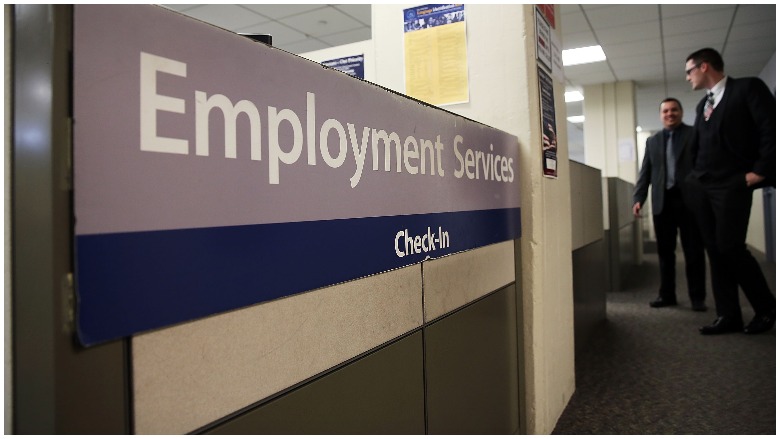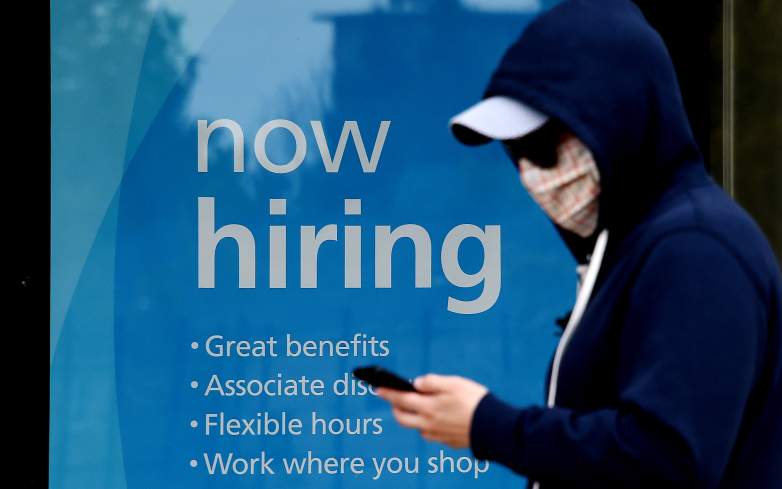
Getty
As coronavirus stimulus bill negotiations remain at an impasse, 12 million Americans risk losing their unemployment benefits the day after Christmas.
Although the CARES Act $600 weekly boost in federal unemployment benefits expired in July, two other programs are slated to end during the last weekend of December, according to CNBC and KTVU.
Protections for renters, homeowners and student loan borrowers are also set to expire, CNBC noted.
Relief talks have yet again reached a stalemate as lawmakers continue to argue over the overall cost of the next bill. Democrats are seeking substantial state and local government funding, while Republicans are pushing for employer liability shields, according to a late-October story in the Chicago Tribune.
The White House and House Speaker Nancy Pelosi had been discussing a package between $1.8 trillion and $2.2 trillion, but the talks fell apart leading up to the November 3 election, Business Insider reported. Senate Majority Leader Mitch McConnell is now heading up an effort for a smaller, Senate-backed stimulus proposal, the outlet continued.
House members are “encouraged to remain in Washington” after the last votes on December 4, CNBC said, citing House Majority Leader Steny Hoyer.
Here’s what you need to know:
The Century Foundation Estimates That 12 Million Workers Will Be on 1 of the 2 Main CARES Act Programs When Funding Expires on December 26

GettyA man wearing a face mask walks past a sign “Now Hiring” in front of a store amid the coronavirus pandemic on May 14, 2020 in Arlington, Virginia.
Although Congress this spring created the weekly $600 Pandemic Unemployment Assistance (PUA) supplement for each recipients through July 31, it also established two other programs to aid struggling Americans, according to The Century Foundation.
Lawmakers created the Pandemic Unemployment Assistance (PUA) for gig workers and “others not eligible for regular benefits,” as well as 100 percent federal funding for benefits for the long-term unemployed through Pandemic Emergency Unemployment Compensation (PEUC) and Extended Benefits (EB), The Foundation continued.
However, both PEUC and full federal funding for EB benefits are set to expire on December 26, the think tank said.
“Most workers began collecting state unemployment benefits in March or April, and since these benefits typically max out at twenty-six weeks, these workers’ benefits are already coming to an end,” according to The Century Foundation.
“Three million workers already ran out of state jobless benefits in September, and based on these trends, more than 4 million more workers likely ran out by the end of October (official tallies are not released until November 20).”
Based on the current number of people already on federal and state benefits, the foundation estimates that:
- 12 million workers will be on one of the two main CARES Act programs, PUA and PEUC, when funding expires on December 26.
- An estimated 7.3 million workers will see their PUA benefits expire on December 26, and 945,000 will run out of PUA before December.
- An estimated 4.6 million workers will see their PEUC benefits prematurely expire on December 26.
- Only 2.9 million of those running out of PEUC will be able to collect EB in 2021 — but states will have to pick up half of the cost at a time when their trust funds are depleted.
The Foundation also noted that Black workers and communities of color are “particularly at high risk” of being negatively impacted by the pandemic recession.
Unemployment & Policy Experts Estimate That a New Weekly Subsidy Is ‘Almost Certain’ to Be Included in Any Upcoming Stimulus Package
According to CNBC, the enhanced benefit “would likely fall somewhere between $250 and $600 a week, and would likely be retroactive to early September.”
Michael Strain, director of economic policy studies at right-leaning think tank American Enterprise Institute, told the outlet, “If we are going to get another round of stimulus, I can’t imagine that won’t be included in it.”
He noted that “it’s far from certain we will get another round,” though, CNBC said.
While nine months have passed since President Donald Trump signed the $2.2 trillion CARES Act, president-elect Joe Biden implied on November 18 that a deal for a stimulus package most likely won’t be reached until next year.
However, he “expressed optimism that Republicans in Congress would address his party’s calls for state and local funding when Trump leaves office,” Newsweek reported.
The president-elect cites economic recovery as one of his “Day One” priorities on the Biden-Harris transition website.
Biden’s plan promises to provide extra funding for state, local and tribal governments, extend “COVID crisis unemployment insurance to help those who are out of work” and create jobs through a Public Health Job Corps, among other measures, according to the website.
READ NEXT: Coronavirus Vaccines: Health Experts Identify Ways to Build Public Trust